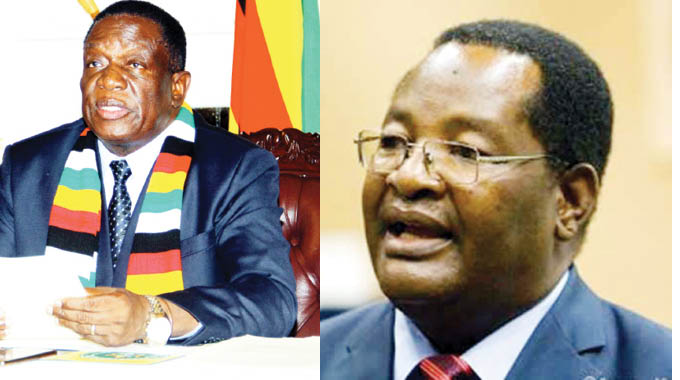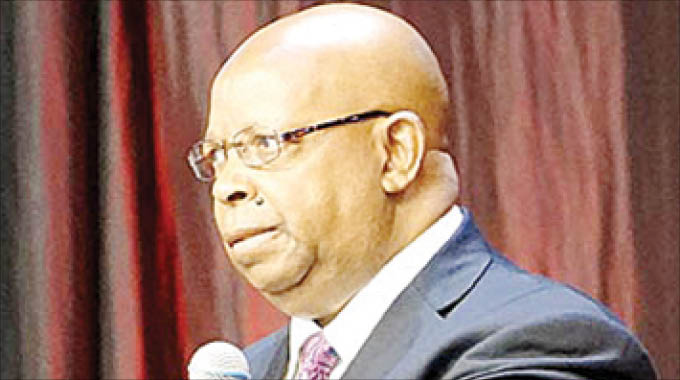Anti-sanctions: In pursuit of the national interest

Nduduzo Tshuma, Political Editor
THE successful campaign against illegal Western sanctions on Zimbabwe last Friday expanded from a regional exercise by Sadc to an Africa wide exercise that was also joined by nations beyond the continent.
Initially, Sadc countries had agreed during the 39th Ordinary Summit held in Tanzania in August to set aside October 25 as the solidarity day against illegal sanctions imposed on Zimbabwe and resolved to conduct various activities in their respective countries on the day to call for the immediate removal of the sanctions.
On the day, President Mnangagwa addressed the Sadc initiated Anti-sanctions Solidarity Day at the National Sports Stadium in Harare calling for the immediate removal of the embargo where representatives of countries also gave solidarity messages.
The ruling African National Congress (ANC) also deployed its secretary general Cde Ace Magashule to the country where he and his Zanu-PF counterpart Dr Obert Mpofu signed a Memorandum of Understanding (MoU) to collaborate and up the tempo in the fight for the unconditional removal of sanctions against Zimbabwe in Beitbridge, Matabeleland South.
The country was to get a diplomatic bonus when the campaign widened beyond the regional bloc to the entire continent when the African Union (AU) voiced its objections to the sanctions imposed on Zimbabwe calling for their immediate removal.
Internationally, China, Cuba and the Non-Aligned Movement made strong calls for sanctions against Zimbabwe to be removed, a development that sent shock waves in the corridors of some Western embassies.
Africa and her friends outside the continent stood firm in their stance against the punitive sanctions on Zimbabwe that continue to frustrate the country in its quest for prosperity.
After the incredible support that Zimbabwe received from the region, continent and beyond, it is baffling that some Zimbabweans have chosen to be cheer leaders of the embargo.
It is however not surprising because these characters that include the opposition MDC Alliance are beneficiaries of the Western purse.
The illegal western sanctions on Zimbabwe have been the single greatest impediment to efforts to turnaround the economy for almost two decades.
The sanctions are infact the greatest threat to Zimbabwe’s national interest defined by Hans Morgenthau as, “. . . survival — the protection of physical, political and cultural identity against encroachments by other nation-states.”
Other notable scholars have given their own perspectives on national interest like Charles Lerche and Abdul Aziz who hold that national interest refers to, “The general, long term and continuing purpose which the State, the nation, and the government all see themselves as serving.”
The Brooking Institution further explains the national interest as, “What a nation feels to be necessary to its security and wellbeing … National interest reflects the general and continuing ends for which a nation acts.”
Another perspective from Vernon Von Dyke states that, “National Interest is, that which States seek to protect or achieve in relation to each other. It means desires on the part of sovereign states.”
In a capsule, national interest therefore represents those enduring values and aspirations of a State in its interaction with other nations in the international scene.
It therefore behoves every Zimbabwean regardless of political affiliation to support initiatives that promote national interest and one such initiative is the call for the removal of the illegal Western sanctions.
The Minister of Foreign Affairs and International Trade Dr Sibusiso Moyo in an interview with the media in July, called for a united stand on re-engagement and the call for the removal of sanctions.
“When we speak as a nation with one voice and if we want to re-engage, let’s do so. But re-engagement will strengthen the position of Zimbabwe economically, that is the national interest which we want for our people. Let us differ on tactics down there, but the national interest must be reconciled so that we can achieve. So that’s the first issue,” said Dr Moyo then.
Also addressing Zimbabweans living in England last year, Dr Moyo said political contestations should not trump the national interest.
“We want to introduce in Zimbabwe what we call civil politics. Why should political contestation overshadow national interests?’’ he asked.
The Permanent secretary in the Ministry of Information Publicity and Broadcasting Services Mr Nick Mangwana has also spoken against supporting things that work against the good of the country.
“In 279 BC, Pyrrhus of Epirus defeated the Romans but lost his best officers and troops. This is what led to the term Pyrrhic Victory which means a victory in which one loses. In our case it’s successfully campaigning for sanctions against own country which kill own family members,” posted Mr Mangwana on his Twitter page yesterday.
Morgenthau goes further to state that it is the duty of the individual State to pursue its national interest.
“Despite the profound changes which have occurred in the world, it still remains true, as it has always been true, that a nation confronted with the hostile aspirations of other nations has one prime obligation to take care of its own interests.
“The moral justification for this prime duty of all nations, for it is not only a moral right but also a moral obligation arising from the fact that if this particular nation does not take care of its interests, nobody else will. Hence the counsel that we ought to subordinate our national interest to some other standard is unworthy of a nation great in human civilisation,” holds Morgenthau.
“A nation which would take that counsel and act consistently on it would commit suicide and become the prey and victim of other nations which know how to take care of their interests.”
Here is a country, that has for the first time since the imposition of the sanctions received overwhelming support from across the globe in the fight against sanctions, only to have some of its sons and daughters electing to celebrate them.
The African brothers and sisters and those from beyond have joined the calls to lift the embargo and by extension help pursue Zimbabwe’s national interest yet we have some characters, who for selfish reasons continue to support the sanctions.
Political analyst Mr Richard Mahomva said the negative stance on the anti-sanctions agenda by, especially the opposition, is unhelpful.
“The continued attacks on the anti-sanctions proposition by the opposition and it’s Western proxies is telling of a deliberate asymmetrical warfare against the region’s longstanding and unequivocal aspirations.
“It’s not new that the MDC-A is taking this position, their continued suppport of sanctions on Zimbabwe is telling of MDC’s attachment to colonial-hegemonic white monopoly capital,” said Mr Mahomva.
“The slanders of the 25 October Movement can only be haters of ‘African solutions for African problems.’ This is way the MDC from the outset has been instrumental in manufacturing false propriety and human-rights justifications for sanctions. By its very character and cradle, MDC is a hub and agent of neo-imperial supremacy. Therefore, it is expected of the MDC to be undermining the Sadc anti-sanctions clarion call.”












Comments